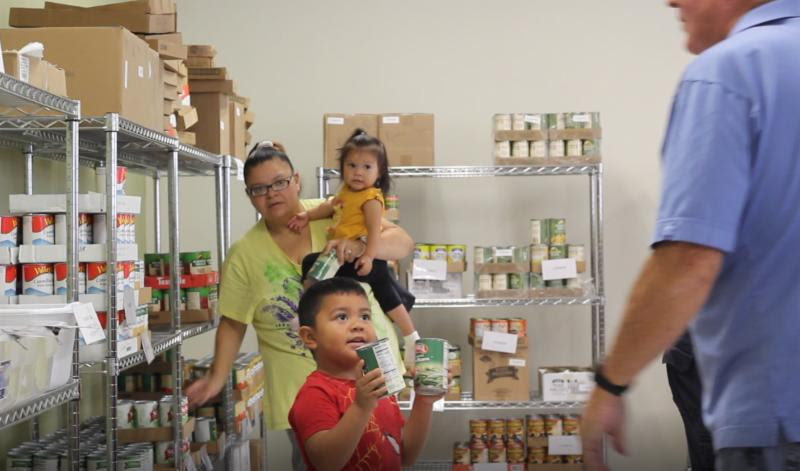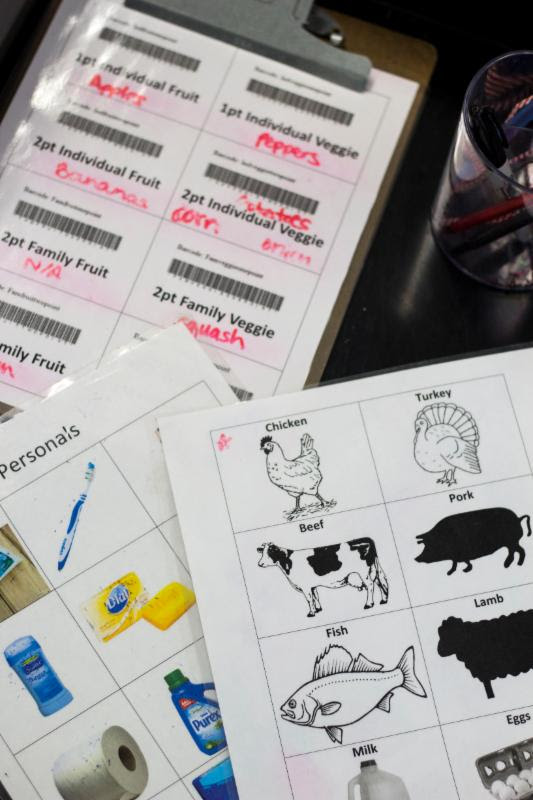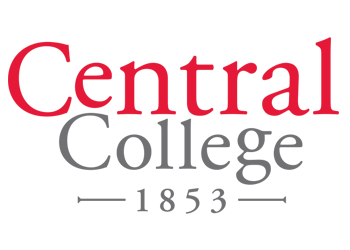January 2018

A New Kind of Food Pantry
This article first appeared in the Nov/Dec/Jan 2017-2018 issue of The Voice.
By Jenna Cornick, DMARC Multimedia Storytelling Intern
A mom peruses the pantry, carefully selecting food items from the shelves and handing them to her children, who proceed to pass the fruits, veggies, cans and boxes to a volunteer at the "checkout" cart.
The food pantry at West Des Moines Human Services, home to the Food Pantry 2.0 pilot program, now looks quite different from your average pantry.
What began as a $30,000 award-winning idea has transformed into an experience which provides practical solutions to issues generally faced by food pantries, including language barriers and the challenge of providing fresh food for clients.
"The issues we are seeing are solvable if funds and efforts are diverted to the right streams," said Daniel Beck, DMARC Food Pantry Network Assistant Director.
Making the Healthy Choice the Easy Choice
Food Pantry 2.0 is a point-based system developed by a certified nutritionist. Points are allotted to families each month based on household size.
The point-based system tackles many problems, one being the fact that in most circumstances, high caloric, unhealthy options are the more cost efficient options.
"The new system that we're using with the points has been a huge success with the customers," said Jim Macon, a volunteer who has served at West Des Moines Human Services for the last 4 years. "Now they can choose to eat healthier foods because the healthier foods are less costly point-wise than the not-so-healthy foods."
Allowing More Pantry Visits Every Month
The point system additionally allows families greater freedom in visits. Rather than only permitting one visit per month, the new system makes it possible for the pantry to serve a client multiple times per month, so long as they still have points remaining.
"It's easier to keep track. They have the points and it's nice that I don't have to do it all at one time. I could [visit] a couple times if I needed to or grab something here and there," said Michelle McCuddin, visiting the food pantry to feed eight children and two grandbabies.
"It's probably only 10 to 15 percent [of visitors] that spend all their points in their first visit. That's been the most smashing success of this. People are able to break it up if it's a transportation issue, you know, they're not carrying 80 to 90 pounds of food onto a bus or something like that," said Beck.
Visitors to the food pantry at West Des Moines Human Services get there a variety of ways. Some ride bikes, some walk, and some even use a wheelchair to get there.
"Even those families with a vehicle are still breaking up their points. If you live on a third floor apartment, that's a lot of groceries to carry up if you've got 200 points for the month," said Stephanie Corbett, the food pantry coordinator at West Des Moines Human Services.
Overcoming Language Barriers
Another improvement of Food Pantry 2.0 has been translating intake questions and other commonly used phrases into 14 different languages.
"Quite often," said Macon, "[clients] will bring another member of their family, and in many cases, it's the young son or young daughter that can speak English, because they're going to school here now, and the parents do not speak it very well."
Safwan Abdullah spent a year translating for the U.S. Army, so his English is fairly strong. He had a successful career as a university professor in a beautiful part of Iraq. Yet, his home was destroyed and possessions stolen as the political system gave way to violence closer to home.
"Since we first [visited the food pantry] last year, we found good people. Good things from the staff from the administration. So, [words are] not enough to tell them thank you. I hope I [can] do more and more things to give them for their help, their assistance. I don't know how to thank them," said Abdullah.
Abdullah's wife accompanied him to the food pantry. She does not speak much English, but was sure to say "thank you" to the volunteers as they walked out.
CONTACT
Luke Elzinga
DMARC Communications Manager
lelzinga@dmarcunited.org
515.277.6969 x10
Central College Service Day
Central College in Pella, IA is looking to identify at least 50 half-day or daylong projects for their upcoming Service Day on April 10, 2018. 
Projects will take place in Pella, Des Moines, Knoxville, Newton, Oskaloosa, and other communities!
Projects can be small or large in scale, requiring just a few or more than a dozen volunteers. Projects from past years have included landscaping/yard work, facility cleanup, leading children's activities, painting, organizing supplies, invasive species removal, visiting with residents of long-term care, highway cleanup, and much more.
If you're interested in being a project site for Central College's Service Day, please reach out Cheri Doane and provide the following information:
-
Organization name and address
-
Organization Contact person
(name, telephone number, email address) -
Project Description
-
Number of volunteers requested
-
Any special clothing?
- Requested time of day, length of project
Note: Although classes are cancelled, some students will have work or other activities that day and we have learned that full-day projects are difficult to fill. -
Any other pertinent information
Since they will be working with so many organizations, it will not be possible for the college to furnish supplies or equipment.
Selection of projects will be based on date of response, as well as logistical considerations. Final date to submit a project request is February 2, 2018. They will confirm that your project has been selected by approximately March 1.
CONTACT
Cheri Doane
Director of the Center for Community-Based Learning
Central College
doanec@central.edu
Office: 641.628.5332 |Cell: 641.780.7040
www.central.edu

